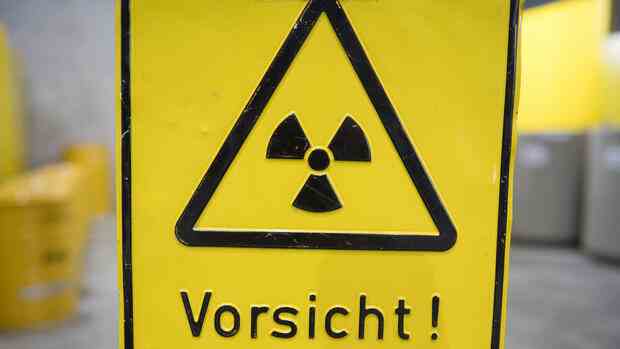A warning sign «Radioactive – Caution! Increased radiation” is written on December 11, 2017 in Lubmin (Mecklenburg-Western Pomerania) in the “Interim Storage Facility North” (ZLN) on the premises of the “Disposal Plant for Nuclear Plants” (EWN). By 2021, the state-owned disposal plant for nuclear plants will build a dismantling hall for radioactive waste on the site of the former Lubmin nuclear power plant. (to dpa “EWN builds dismantling hall for nuclear waste” from 13.12.2017) Photo: Stefan Sauer/dpa +++(c) dpa – Bildfunk+++
(Photo: dpa)
Dusseldorf Germany’s first sovereign wealth fund has strict rules, at least in theory. The fund with the name Kenfo is based on the image of the “respectable merchants”, writes CEO Anja Mikus in the foreword of the code of conduct. He must act “legally and morally at all times” in accordance with social values.
He is also obliged by law to act according to ESG criteria – i.e. to invest ecologically, socially and ethically. But Handelsblatt research raises doubts about how seriously the fund takes it.
Kenfo is the abbreviation for “Fund for the Financing of Nuclear Waste Management”. Hardly anyone knows about Germany’s largest public foundation, but it manages more than 25 billion euros. The German power plant operators Eon, EnBW, RWE and Vattenfall paid in the money in 2017. The disposal fund invests the billions on behalf of the state in order to use the proceeds to finance the permanent storage of nuclear waste.
Read on now
Get access to this and every other article in the
Web and in our app free of charge for 4 weeks.
Continue
Read on now
Get access to this and every other article in the
Web and in our app free of charge for 4 weeks.
Continue
